From the Chicago Reader (September 1, 1993). — J.R.
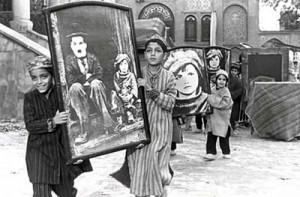
An entertaining if somewhat uneven departure by Mohsen Makhmalbaf, this 1992 film can be regarded in part as a kind of peace offering to the Iranian government after the banning of his two previous features. A fantasy about the birth of Iranian cinema, full of whimsical special effects and wacky magical-realism conceits, it’s centered on an early cinematographer (Mehdi Hashemi) — modeled loosely and rather awkwardly on Chaplin’s tramp figure — who introduces movies to the Persian court, gradually winning over the shah (Ezatollah Entezami) after the ruler falls for an actress (Fatemeh Motamed Aria, literally dropping from the screen into the palace). Quirkily inventive and unpredictable, the film concludes with a sentimental anthology of clips celebrating the history of Iranian cinema that calls to mind Oscar night; before this, much more interesting use is made of a silent film identified by Makhmalbaf as the first Iranian movie, Ebrahim Khan’s Hajagha, the Film Actor. In Farsi with subtitles. 90 min. (JR)
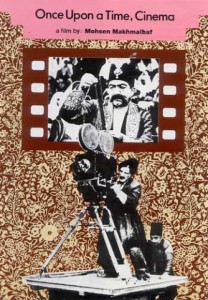 Read more
Read more
It appears that I hated Basic Instinct when it came out in 1992 (this review appeared in the Chicago Reader on April 3), before I became something of a diehard Paul Verhoeven fan, and now I like the movie a lot. Or maybe I was a fan back then, at least in a back-handed sort of way, and wouldn’t or couldn’t admit this to myself. I offer the following as evidence of my former position, whatever it might have been.– J.R.

BASIC INSTINCT
No stars (Worthless)
Directed by Paul Verhoeven
Written by Joe Eszterhas
With Michael Douglas, Sharon Stone, George Dzundza, Jeanne Tripplehorn, Denis Arndt, Leilani Sarelle, and Dorothy Malone.
By Jonathan Rosenbaum
What’s really news about Basic Instinct isn’t that it’s number one at the box office; after all, that happens to some movie every week. Nor is it that you get to see Sharon Stone’s (quite ordinary looking) twat for a few seconds when she uncrosses her legs. Even the bisexual and lesbian psycho serial killers, which gay groups are protesting, aren’t news.
No, the real news about Basic Instinct is that Joe Eszterhas got $3 million for the script. This is clearly a script that’s going to be studied and emulated for some time to come. Read more
From the Chicago Reader (September 1, 1992). — J.R.
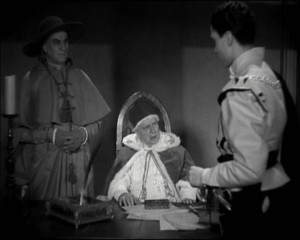
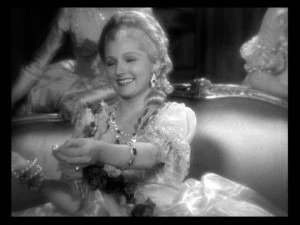
Henry II dies in a quizzical jump cut, Arletty’s voice is run backward to suggest the speech of an Abyssinian snake princess, and writer-director Sacha Guitry plays several parts (including Francis I, Napoleon III, and himself telling the film’s story to his wife). It’s often been said that you have to know French to fully appreciate Guitry’s cleverness and genius. But even if only those who speak French will catch a pun capping Jacqueline Delubac’s attempt to resist Raimu’s advances by speaking exclusively in adverbs, the sheer personality and energy of this 1937 film transcends linguistic barriers. A tale about the fate of seven perfect pearls, four of them in the English crown, it starts in the 16th century and proceeds by leaps and bounds into the 20th, periodically shifting to English or Italian to give its wit and formal play more international cachet. If you’ve never encountered Guitry, this is a plausible place to start. The all-star cast also includes Marcel Dalio, Claude Dauphin, and Jean-Louis Barrault. In English and subtitled French and Italian. 100 min. (JR)
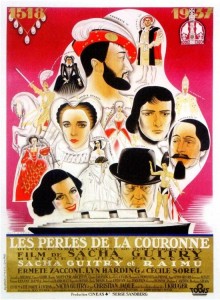 Read more
Read more
From the Chicago Reader (January 1, 1993). — J.R.
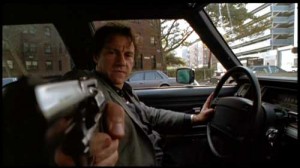
The able Abel Ferrara (Ms. 45, King of New York) goes arty, which means that a corrupt cop and guilty Catholic (Harvey Keitel) cries and apologizes personally to Jesus Christ after swiping, smoking, and snorting every drug in sight, compulsively betting on ball games and losing, ripping off thieves and the grocer they hold up, shooting his car radio with his pistol, jerking off in front of teenage girls, and lots of other fun activities. What transports him even more, it seems, is his outrage that a nun raped in a church decides to forgive her two rapists and refuses to identify them. There’s an undeniable formal elegance in the way Ferrara, who coauthored the script with Zoe Lund, frames and holds certain shots, and Keitel certainly gives his all in this 1992 entry in the Raging Bull redemptive sweepstakes. But I must confess I kept thinking of a friend’s response to this movie — that it made him feel glad, even proud, not to be straight. With Victor Argo, Paul Calderone, Leonard Thomas, Robin Burrows, Frankie Thorn, Victoria Bastel, and Paul Hipp. 98 min. (JR)

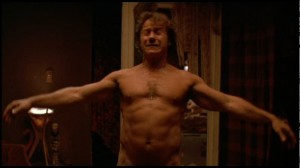 Read more
Read more
From the Chicago Reader (June 1, 1992). — J.R.
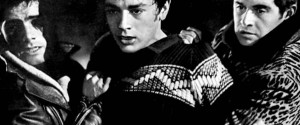
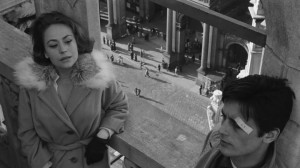
An epic (1960) from Luchino Visconti about five brothers (Alain Delon, Renato Salvatori, Spiros Focas, Rocco Vidolazzi, Max Cartier) who, with their widowed mother (Katina Paxinou), leave their impoverished farm in southern Italy for the corruptions of Milan. This looks like a primary sourcebook for the overheated operatic styles, homoerotic intensity, quasi-incestuous delirium, and casual conceptual misogyny of Scorsese, Coppola, and Cimino — and you may have to value the ranker elements of those filmmakers more highly than I do to consider this precursor more than a mannerist touchstone. Visconti is an incontestable master in films as diverse as La Terra Trema, Senso, The Leopard, and The Innocent, but those films don’t employ women as unconvincingly or as insultingly as this one does. Still, you may be swept along by the sheer grace and stamina of the mise en scene and Nino Rota’s music. With Annie Girardot, Roger Hanin, Suzy Delair, Claudia Cardinale, and, in a smaller role, Adriana Asti. In Italian with subtitles. 180 min. (JR)
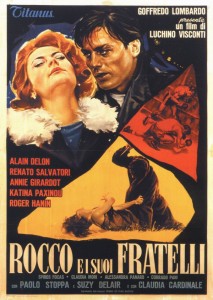 Read more
Read more












